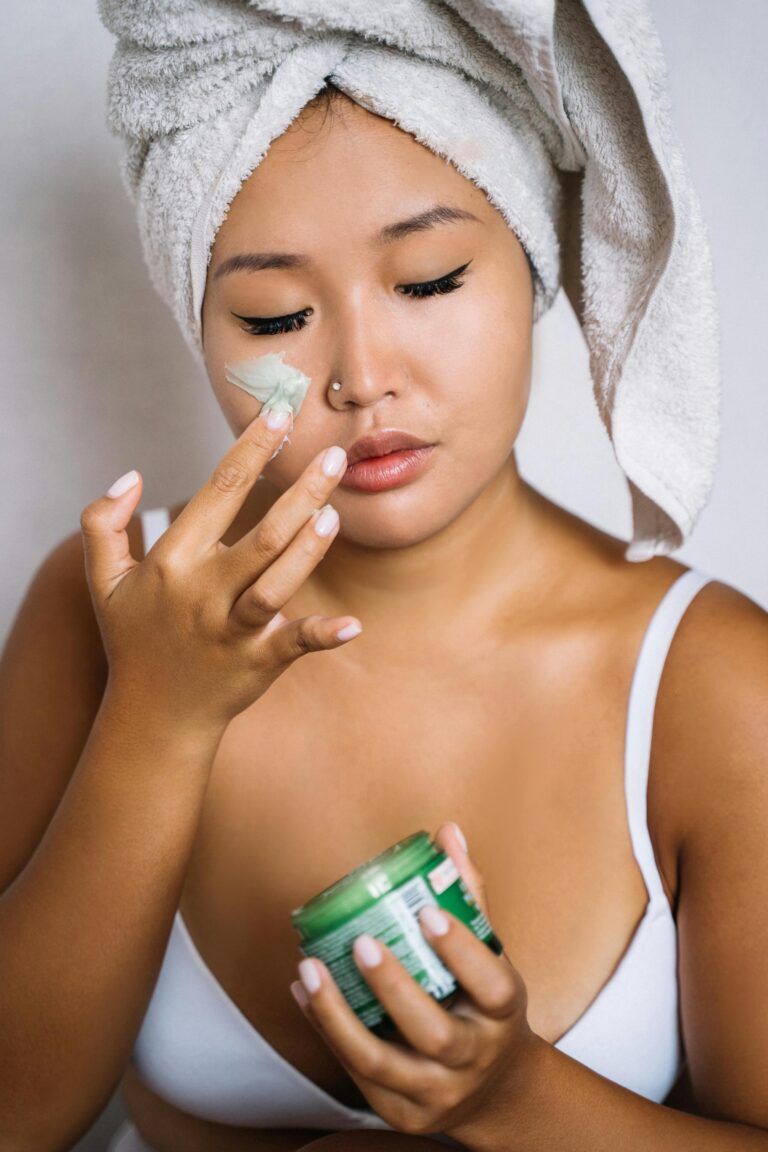How To Treat Sensitive Skin: Effective Tips for Healthy Skin
Does your skin throw a tantrum at the slightest hint of a new product or a change in weather? You’re not alone. Sensitive skin can feel like a full-time job—itching, redness, and irritation seem to pop up at the worst times, leaving you frustrated and unsure of what to do next.
Taking care of sensitive skin doesn’t have to feel like a mystery. When you understand what your skin truly needs, you can finally ditch the discomfort and embrace a routine that works with your skin, not against it. Imagine calm, happy skin that lets you focus on living your life instead of battling flare-ups.
Understanding Sensitive Skin
Sensitive skin isn’t just a buzzword; it’s a skin type that needs extra care. If your skin feels tight, reacts easily to products, or becomes red and itchy without warning, you’ve probably dealt with sensitive skin. It’s more common than you might think and can be tied to a weaker skin barrier, allergies, or specific skin conditions like eczema or rosacea.
Your skin has a barrier that helps keep moisture in and irritants out. When this barrier is compromised, it leaves your skin vulnerable to external triggers like harsh weather, pollutants, or even certain skincare ingredients. This is why sensitive skin often feels dry, irritated, or inflamed after small changes in products or routines.
Triggers for sensitive skin can include fragrances, alcohol-based products, or even over-exfoliation. Ingredients like sulfates in cleansers or essential oils in creams can irritate your skin, even if they work well for someone else. Understanding these triggers helps you make better product choices.
Paying attention to how your skin reacts is key. For example, if a new moisturizer causes redness or stinging, it’s likely not the right fit for you. Testing products on a small patch of skin before using them fully can prevent these uncomfortable reactions.
Common Causes Of Sensitive Skin
Sensitive skin can feel frustrating, but understanding its causes makes it easier to manage. Some triggers are external, like the environment, while others come down to the ingredients in your skincare routine. Let’s jump into the most common culprits.
Environmental Factors
The weather often plays a huge role in upsetting sensitive skin. Dry, cold air can strip your skin of moisture, leaving it tight and irritated, while hot, humid climates might cause redness or itchiness. Wind exposure can also aggravate sensitive skin, especially if your skin barrier is already compromised.
Pollution is another factor. Dirt and particles in the air can clog pores, creating irritation or breakouts more quickly if your skin reacts easily. Protecting your skin with a gentle barrier cream and using a non-stripping cleanser to remove pollutants can make a big difference.
UV rays might also worsen sensitivity. Without sunscreen, your skin is more prone to burning, redness, or long-term damage, which can increase reactivity over time. Opt for a fragrance-free, lightweight sunscreen for daily protection.
Skincare Ingredients
Some skincare ingredients are more likely to irritate sensitive skin, even when they’re popular in beauty products. Fragrances, whether natural or synthetic, are a top offender, often causing redness, itching, or discomfort. Picking fragrance-free products can help significantly.
Alcohol, often added to products for quick-drying effects, dries out your skin and can lead to further irritation. Common examples include denatured alcohol or ethanol, so keep an eye on ingredient lists.
Acids, like AHAs (glycolic acid) and BHAs (salicylic acid), help exfoliate skin but can be too harsh for sensitive types, especially in higher concentrations. Try products with gentler exfoliants, like lactic acid, or use them less frequently.
Preservatives such as parabens or formaldehyde releasers might also inflame sensitive skin. When labels mention “paraben-free” or “formaldehyde-free,” it’s worth considering those options.
By identifying these triggers and choosing milder alternatives, you’ll be better equipped to care for your sensitive skin without unnecessary flare-ups.
Effective Ways To Treat Sensitive Skin
Treating sensitive skin doesn’t have to feel overwhelming. By understanding your skin’s needs and making some thoughtful changes, you can calm irritation, strengthen your skin, and keep it happy day-to-day. Let’s jump into some practical steps.
Choosing The Right Skincare Products
Sensitive skin thrives on gentle, no-fuss products. Focus on fragrance-free options and avoid harsh ingredients like alcohol and sulfates. Look for labels mentioning “hypoallergenic” or “suitable for sensitive skin.” Simple ingredient lists are your best friend since fewer ingredients mean fewer chances for irritation.
Avoid overloading your skin with too many actives at once. For example, skip pairing retinol with strong exfoliating acids. Use soothing ingredients like aloe vera, chamomile, or colloidal oatmeal to help calm inflammation. Before fully committing to a new product, patch-test it by applying a small amount on your wrist or behind your ear.
Importance Of Hydration
Sensitive skin loves moisture—hydration strengthens your skin barrier, making it less reactive. Use a lightweight, hydrating moisturizer packed with ceramides, glycerin, or hyaluronic acid. These ingredients lock in moisture and protect your skin from irritants.
Layer a hydrating toner or essence for extra comfort if your skin feels tight or flaky. Drinking water also helps hydrate your skin from within, though topical hydration matters most.
Sun Protection Measures
Sun exposure can quickly aggravate sensitive skin, so daily sunscreen is a must. Choose a mineral sunscreen with zinc oxide or titanium dioxide, as these are less likely to cause irritation compared to chemical filters.
Apply sunscreen as the last step of your morning skincare routine, even on cloudy days. Opt for products with SPF 30 or higher for reliable protection. Broad-spectrum formulas ensure you’re shielded from both UVA and UVB rays, keeping your skin calm and safe.
Natural Remedies For Sensitive Skin
Caring for sensitive skin doesn’t have to mean endless products or frustration. Nature offers plenty of gentle options to soothe and nurture your skin without irritation. If you’re looking for calming, budget-friendly solutions, here’s everything you need to know.
Calming Ingredients To Look For
Some natural ingredients are incredibly soothing for sensitive, reactive skin. Adding these to your routine can help calm redness and irritation:
- Aloe Vera: Known for its cooling properties, aloe vera hydrates while reducing redness and inflammation. Apply pure aloe gel directly to your skin as needed.
- Chamomile: Often found in teas, chamomile also works wonders as a soothing ingredient in skincare. Look for chamomile-enriched creams or DIY a toner using chamomile tea.
- Oatmeal: Colloidal oatmeal, which is finely ground, can relieve itchiness and dryness. Check ingredient labels or mix oatmeal with water for a DIY mask.
- Calendula: This flower extract promotes healing and reduces discomfort. Products with calendula are especially beneficial for dry, sensitive patches.
- Honey: Naturally antibacterial and hydrating, honey works well as a mask or spot treatment for sensitive skin.
DIY Skincare Options
If you’re into DIY, creating simple remedies with items from your kitchen or garden is surprisingly easy. These options are both affordable and effective:
- Oatmeal Soak: Mix one cup of colloidal oatmeal into a warm bath to soothe irritation all over your body. Pat skin dry gently afterward.
- Aloe and Cucumber Gel: Blend fresh aloe vera gel with cucumber juice for a refreshingly cool face mask.
- Honey Mask: Apply a thin layer of raw honey to your face and let it sit for 10-15 minutes before rinsing with lukewarm water. Your skin will feel soft and calm.
- Green Tea Spray: Brew green tea, let it cool, and transfer it to a spray bottle. Use it as a calming facial mist throughout the day.
- Rosewater Toner: Use pure rosewater as a toner after cleansing for a gentle refresh that won’t strip your skin.
Mistakes To Avoid When Treating Sensitive Skin
You may think you’re doing everything right for your sensitive skin, but some habits or choices might be making things worse. Avoiding these mistakes can save your skin from unnecessary irritation and help you feel more confident in your skincare routine.
1. Overusing Too Many Products
Stacking multiple products often overwhelms sensitive skin. Using a cleanser, toner, serum, moisturizer, eye cream, and mask all at once—especially if they contain active ingredients—can trigger redness or itching. Stick to the essentials: a gentle cleanser, hydrating moisturizer, and sunscreen.
2. Skipping Patch Testing
Not patch-testing new products is a common misstep. Applying something directly to your face without testing can lead to an immediate reaction. Swipe a small amount on your inner arm or behind your ear and wait 24 hours to see if your skin reacts.
3. Using Fragranced Products
Fragranced skincare products may smell amazing but often irritate sensitive skin. Check labels for “fragrance-free” or “unscented,” and be cautious even with natural scents as they can also cause reactions.
4. Over-Exfoliating
Even if you’re chasing that glowy skin, exfoliating more than once or twice a week is too harsh for sensitive skin. Strong scrubs, acids, or physical brushes can worsen sensitivity. Opt for a mild exfoliant with soothing ingredients like oatmeal or lactic acid.
5. Using Hot Water
Steaming hot showers might feel relaxing, but they strip your skin’s natural oils and damage your barrier. Wash your face with lukewarm water instead to keep your skin balanced and hydrated.
6. Ignoring Sun Protection
Skipping SPF leaves sensitive skin exposed to UV rays, which can lead to redness, irritation, or dryness. Use a mineral sunscreen with zinc oxide or titanium dioxide to avoid reactions while staying protected.
7. Constantly Switching Products
Switching products before giving them time to work disrupts your skin and delays progress. Sticking to a routine for at least 4–6 weeks lets your skin adjust and see benefits. Emit impatience and focus on consistency.
8. Rubbing Your Skin
Roughly toweling off or scrubbing your face doesn’t help—it aggravates sensitive skin. Gently pat your face dry with a soft, clean towel. Treat your skin like it’s delicate, because it is.
By avoiding these common mistakes, you can better support your sensitive skin’s health and steer clear of irritation.
Conclusion
Sensitive skin care doesn’t have to feel like an uphill battle. With the right approach, you can create a routine that keeps your skin calm, healthy, and glowing. By choosing gentle products, staying hydrated, and protecting your skin from harsh elements, you’re already on the path to success.
Don’t forget to listen to your skin and make adjustments as needed. Small changes can lead to big improvements, and your skin will thank you for the extra TLC. You’ve got this—happy skin days are just around the corner!






